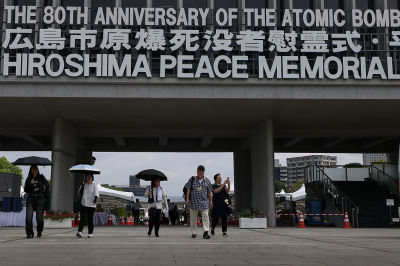The Nuclear Age Marks 80 Years
On August 6, the nation reflected on the 80th anniversary of the atomic bombing of Hiroshima, with a second bombing in Nagasaki following on August 9. These momentous events not only ended World War II but also forever altered the nature of warfare and international policy.

The Build-Up to the Atomic Era
The origins of the atomic bomb lie in the top-secret Manhattan Project, which reached its climax with the first successful detonation near Los Alamos in July 1945. At that moment, the world had been engulfed in war since 1939, and the United States had been fighting since the attack on Pearl Harbor in 1941.
Over 16 million Americans served during the conflict, and the nation faced staggering losses. As battles raged on against determined enemies willing to fight until the very end, U.S. military leaders estimated that an invasion of Japan could cost anywhere from 500,000 to 1,000,000 American lives—a grim prospect that loomed over every strategic decision.
The Harsh Realities of Battle
Fierce confrontations at Okinawa and Iwo Jima underscored the brutal cost of conventional warfare. In Okinawa, thousands of both military personnel and civilians perished, while the intense struggle on the small island of Iwo Jima resulted in heavy casualties on both sides. These battles exemplified the potentially catastrophic loss of life that an invasion of Japan would have entailed.
A personal account from a young sailor, who later recalled preparing to transport Marines for the impending invasion, paints a vivid picture of wartime urgency. With forecasts predicting a 50% casualty rate for the first wave of attackers, the human cost was incalculable and deeply personal for countless families.
Assessing a Difficult Decision
Faced with the unthinkable possibility of an enormous loss of life through a ground invasion, American leaders chose to deploy atomic weapons as the means to end the war swiftly. Although the tragedies in Hiroshima and Nagasaki resulted in the immediate deaths of roughly 150,000 and 64,000 people respectively—with additional losses from radiation in the following years—the alternative was estimated to be far more deadly.
In preparing for the invasion, U.S. authorities had even arranged for half a million Purple Heart medals to acknowledge the inevitable injuries. The grim calculations behind these decisions reveal that many believed this radical step ultimately saved tens of millions of lives, both American and Japanese, by avoiding protracted and bloody combat.
The Enduring Impact of Nuclear Deterrence
Beyond its historical context, the presence of nuclear weapons has played a critical role in deterring large-scale conventional wars among major powers. The looming threat of a nuclear exchange has arguably prevented conflicts over geopolitical disagreements in regions such as Europe and Asia.
Yet, the notion of a “nuclear-free world” remains a challenging illusion. The knowledge and technology to create these weapons cannot simply be forgotten, and even a temporary elimination of nuclear arms might only last until conventional military pressures force nations back into developing them.
For lasting peace and security, it is essential that democratic societies maintain a credible nuclear deterrent while actively working to prevent the spread of nuclear arms. The balance between deterrence and nonproliferation continues to be one of today’s most complex and critical international challenges.
Reflecting on a Contentious Legacy
The decision to use the atomic bomb remains a subject of intense debate. While the devastating loss of life in Hiroshima and Nagasaki is a somber chapter in history, many argue that this decisive action ultimately prevented a far worse loss in a protracted war. As we mark 80 years since these events, the legacy of nuclear warfare serves as both a warning and a reminder of the delicate balance between conflict and deterrence.

Rockin’ the faith, one verse at a time!
Growing up, the Bible’s stories deeply impacted me. Now, with over 15 years of preaching experience, I blend timeless teachings with modern technology, making them relevant for today’s world.
Bible Hub Verse is my platform to share historical insights and thought-provoking articles, exploring both familiar and uncommon Christian topics. My passion is building a welcoming online space for everyone to learn, grow in their faith, and discover the Bible’s enduring message.
Join the journey!
God bless you.






